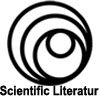PENERAPAN TEORI KONSTRUKTIVIS DALAM PEMBELAJARAN
Abstract
Constructivism is the basis for thinking of a contextual approach, namely that knowledge is built not a set of facts, concepts, or rules that are ready to be remembered. Students must construct that knowledge and give meaning through real experience. Students need to be accustomed to solving problems, finding something useful for themselves, and struggling with ideas. The teacher will not be able to give all knowledge to students. Students must construct knowledge in their own minds. Knowledge is not static, but is constantly evolving and changing as students construct new experiences that force them to base themselves and modify previous knowledge.
Learning must be packaged into the process of constructing knowledge rather than receiving knowledge. In the learning process, students build their own knowledge through active involvement in the learning and teaching process. Students become the center of activities, not teachers.
Critical thinking is an attempt by someone to check the truth of information using the availability of evidence, logic, and awareness of bias. Critical thinking skills are the cognitive processes of students in analyzing systematically and specifically the problems faced, distinguishing these problems carefully and thoroughly, as well as identifying and reviewing information to plan problem solving strategies.
Downloads
The author agrees to the following conditions upon publishing a work to Paedagogia: Jurnal Pendidikan:
1. Each article is licensed under a Creative Commons Attribution-NonCommercial 4.0 International License. The author(s) recognizes that Paedagogia: Jurnal Pendidikan has the right to be the first to publish under a Creative Commons Attribution-NonCommercial 4.0 International License. This license permits the copying and redistribution of this material in any form or format, as well as the composition, modification, and creation of derivative works of this material for any purpose, but Non commercial, as long as the author is credited with the original work.
2. Authors may submit articles separately or arrange for non-exclusive distribution of manuscripts previously published in this journal in other forms (e.g., to the author's institutional repository, publication in books, etc. ), provided that the manuscript is acknowledged as having been published first in the Paedagogia: Jurnal Pendidikan.
3. A copyright submission agreement must attach each approved manuscript prior to publication. You may obtain the form for the copyright submission agreement here (INA) (EN).





























 This work is licensed under a
This work is licensed under a 